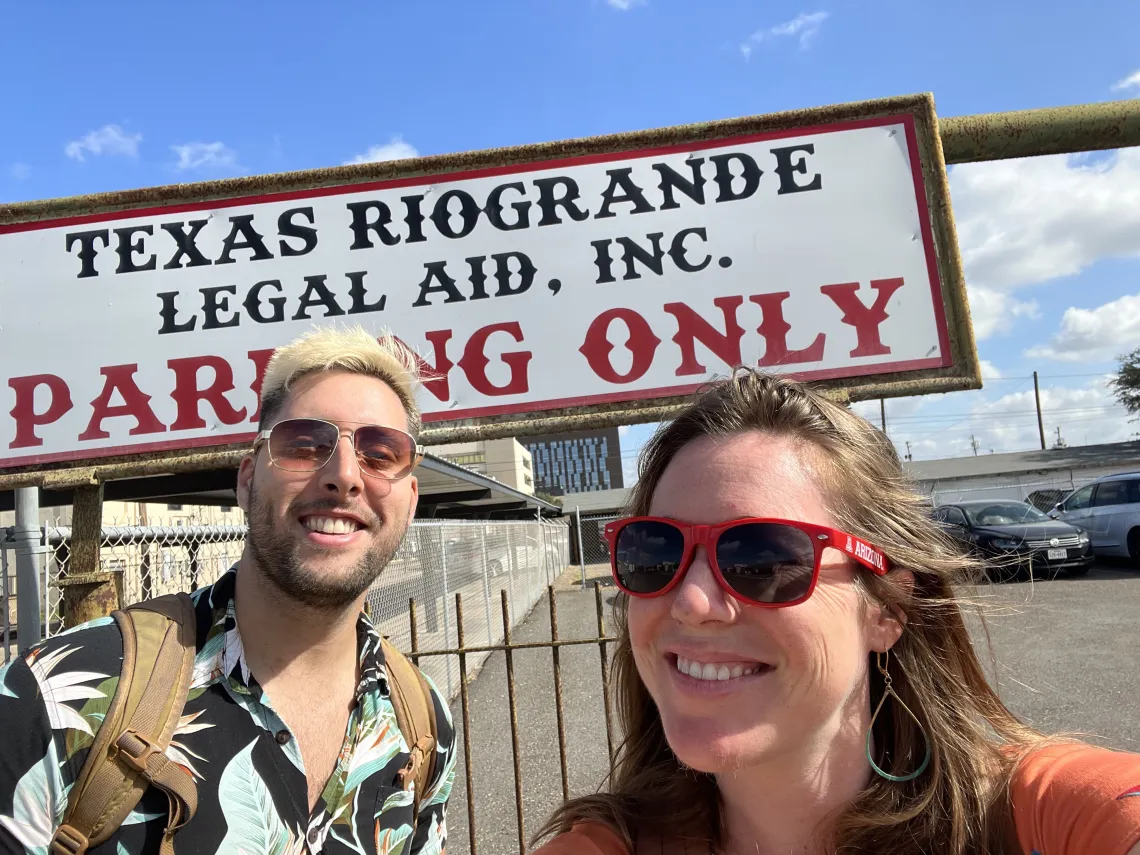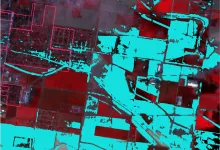Beth Tellman Awarded 2023 Innovation Grant to Tackle Flood Justice with AI and Satellite Imagery

Lucas Belury and Beth Tellman
Beth Tellman, an assistant professor in the School of Geography, Environment, and Environment, was recently named a 2023 Innovation Grantee, awarded by Climate Change AI to partner with community-based organizations in the Rio Grande Valley. The project, Flood Justice and Adaptation in the Rio Grande Valley of Texas with AI and Satellite Imagery, aims to use machine learning and satellite imagery to create high-quality maps and a flood database to support flood justice lawsuits and promote equitable flood adaption. Tellman, the principal investigator, is joined by Arizona co-investigators Lucas Belury, a geography graduate student and Zhijie Zhang, a geography post-doctoral researcher, along with Ana Laurel from Texas RioGrande Legal Aid.
The funding was announced in a press release.
Climate Change AI is a non-profit that empowers a global community of innovators, practitioners, and decision-makers to accelerate responsible climate action through the use of AI. CCAI connects stakeholders through events, educational programs, policy reports, and grants. Now in its second year, this initiative provided $1.4M in total funding in 2023.
The grant will allow Tellman’s team to continue developing a flood database in collaboration with the community, validate the database locally by incorporating the lived experiences of flood-vulnerable residents, and provide a way to share the database with community partners through an interactive and custom-built geospatial mapping tool.

A flood map reflects data from satellite imaging and artificial intelligence.
Beth Tellman
"We are thrilled to be partnering with Texas Rio Grande Legal Aid and community-based organizations in the Rio Grande Valley to use satellite data and AI to address long-standing flood injustice," Tellman said. "The University of Arizona's access to Planetscope data, a high spatial resolution commercial satellite, is proving critical to identifying inundation around homes and streets in this region."
Tellman added, "Digitizing resident's flood experiences is already increasing our AI model accuracy by 10% and ensure the maps better represent the reality residents face on the ground. We are so grateful to our community partners for allowing to work with them and imbue the science that we do with so much meaning and purpose. It's been an inspiring project for me, the co-investigators Lucas and Zhijie, and my lab in general.”
Climate change is expected to increase flood risk in the Rio Grande Valley of Texas, as well as exacerbate inequities in exposure to floods, which disproportionately impact communities of color. However, inadequate flood risk data hampers adaptation efforts. The project plans to use machine learning and satellite imagery to create high-quality flood maps and a flood database for the Rio Grande Valley in order to support flood justice lawsuits and promote equitable flood adaptation.
This $150,000 award from Climate Change AI is part of the Innovation Grants program, which supports projects at the intersection of AI and climate change.
##

